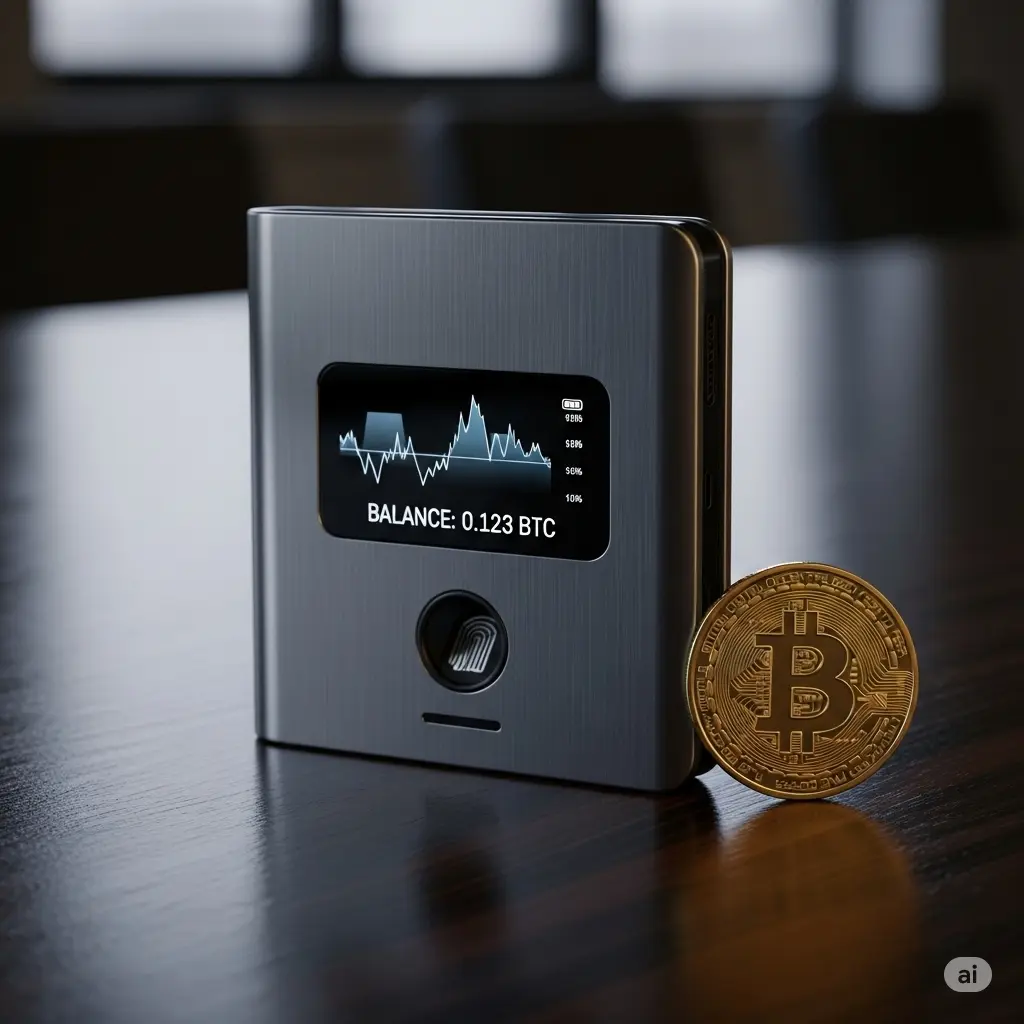Stay Ahead with These Top Secure Crypto Wallets in 2025
Are you on the hunt for the most reliable and secure crypto wallet in 2025? In an era of growing cyber threats, rising DeFi scams, and the exciting expansion of Web3 and Decentralized Finance, safeguarding your digital assets has never been more crucial. This blog post, brought to you by Global Crypto Sports, delivers nothing less than a complete guide to choosing the top secure crypto wallets this year.
You may be wondering: What even is a crypto wallet? And why should I care if it’s “secure”? Think of a crypto wallet as your vault for digital currency—like Bitcoin, Ethereum, or game tokens you might use in Web3 sports platforms. Whether you’re a seasoned investor or just getting started exploring the world of blockchain, DeFi, and beyond, the safety of your funds depends on choosing the right wallet.
Let’s get started!

Why Secure Crypto Wallets Matter in 2025
2025 has proven to be a pivotal year for crypto—from boom cycles in meme tokens to the rise of Global Crypto Sports ecosystems where users trade collectibles and participate in tokenized fantasy leagues. Yet with popularity comes risk:
- Hackers and phishing attacks are on the rise.
- DeFi exploits continue to hit hot wallets.
- Users often “lose” funds because of lost private keys—making crypto wallet security a priority.
Choosing the best crypto wallet 2025 means balancing usability with protection. Some of the biggest losses this year came from mobile or browser wallets left vulnerable, or users who failed at wallet backup. In contrast, savvy investors who went for cold wallet or hardware wallet solutions ride the wave more confidently.
Overview: Secure Crypto Wallet Categories
Let’s break down the main wallet types, with their pros and cons:
Cold Wallets (Offline, Highly Secure)
Types: Hardware wallets, paper wallets
Pros:
- Private keys are never exposed to the internet.
- Excellent protection against hacking.
- Ideal for long‑term storage of large amounts.
Cons: - Less convenient for frequent transactions.
- Risk of losing or physically damaging the device.
- Must back up recovery phrases securely.
Hot Wallets (Online, Convenient)
Types: Mobile wallets, desktop wallets, browser (extension) wallets
Pros:
- Fast access to funds at any time.
- Great for DeFi, Web3 gaming, and sports platform integrations.
Cons: - Vulnerable to phishing, malware, and hacks.
- Private keys (or seed phrases) can be exposed.
- Requires strong security habits.
Decentralized Wallets (User-Controlled Keys)
Often, both hot and coldwalletsst ausededs, so long as you hold the keys, not a third party.
Pros:
- Full control and autonomy.
- No single point of failure at an exchange.
Cons: - Full responsibility lies with you.
- Wallet backup becomes critical.
Core Concepts: What Every Beginner Should Know
Before diving into wallet comparisons, let’s clarify key terms you’ll encounter throughout this guide:
- Blockchain: A decentralized, tamper-resistant ledger that records transactions. Each “block” contains data tied together cryptographically, forming an unchangeable chain.
- DeFi (Decentralized Finance): Financial services—like lending, borrowing, or earning interest—powered by blockchain technology, without traditional banks.
- Web3: The next generation of the internet, built on decentralized protocols. Think of it as apps that give you ownership of your data and access via crypto wallets.
- Decentralized Wallet: A wallet where you control your private keys. Unlike custodial wallets (like exchange‑hosted accounts), no third party can access your funds.
- Hot Wallet: A wallet connected to the internet—e.g., mobile, desktop, or browser extension. Convenient but can be vulnerable.
- Cold Wallet: A wallet that lives offline—e.g., hardware or paper wallet. Highly secure, less convenient.
- Hardware Wallet: A physical device that stores your private keys offline.
- Mobile Wallet: An app on your smartphone that stores and manages your crypto.
- Wallet Backup: Procedures like writing down your recovery phrase—critical for regaining access if something goes wrong.
Top Secure Crypto Wallets in 2025
Here’s a curated list of wallets considered among the best crypto wallets 2025 options:
Hardware Wallets (Cold Wallet Category)
Ledger Nano X / Nano S Plus
- Industry standard with a small screen for transaction verification.
- Bluetooth (Nano X) and USB connectivity.
- Secure Element chip for top-tier security.
Pros: Offline storage, reputable brand, large asset support.
Cons: Cost (~$90–$150), possible supply delays.
Trezor Model T / One
- Touch‑screen Model T and budget Model One.
- Open‑source firmware.
Pros: Transparency, multiple coins, intuitive UI.
Cons: Price (Model T ~ $180), physical device to manage.
Real‑world case: In 2025, a DeFi investor lost €50,000 by leaving funds in a browser wallet—only those who stored their long‑term holdings in a cold wallet like Ledger or Trezor avoided complete wipe‑outs.
Mobile / Hot Wallets
MetaMask Mobile
- Widely used in Web3 and DeFi.
- Syncs with the browser extension.
Pros: Easy integration with dApps and sports platforms.
Cons: Vulnerable to phishing; keep your recovery phrase secure.
Trust Wallet
- Supports many assets, in‑app staking, and swaps.
- Owned by Binance.
Pros: Multi‑chain support, built‑in DApp browser.
Cons: Still hot—prone to malware if the device is compromised.
Hybrid & Decentralized Wallets
Exodus + Trezor Combo
- Use Exodus UI with a connected Trezor hardware wallet.
Pros: Best security and user‑friendly design.
Cons: Requires Trezor hardware purchase.
Rainbow Wallet (for Ethereum and Layer‑2s)
- Beautiful UI, easy NFT and DeFi interaction.
Pros: Great for Web3 gamers and collectors.
Cons: Hot wallet risk.

Pros and Cons at a Glance
| Wallet Type | Pros | Cons |
|---|---|---|
| Hardware Wallet | Maximum security, offline storage | Higher cost, less convenience, need backup |
| Hot Wallet | Instant access, great for DeFi & Web3 sports | Vulnerable to hacking, phishing, malware |
| Decentralized Wallet | Full control, self‑custody, no third party | Full responsibility, backup critical |
Benefits of Choosing a Secure Crypto Wallet
- Reduced risk of theft or loss—especially when storing large amounts long‑term.
- Total control over your funds: no exchange freeze or blackout affects your access.
- Trust and transparency: With open‑source or well‑audited hardware wallets, you can verify security.
- Peace of mind for Global Crypto Sports users: Your tokens in fantasy leagues or sports NFTs stay safe.
Potential Risks and How to Mitigate Them
- Losing your device or seed phrase:
- Write your recovery phrase on paper (not digital), store it in safe places (e.g., a safe deposit box).
- Consider a wallet backup service or a metal backup plate for durability.
- Phishing and scam links (especially for hot wallets):
- Bookmark authentic dApp addresses, avoid clicking random links.
- Keep mobile OS up to date; use antivirus tools if appropriate.
- Firmware vulnerabilities:
- Always update hardware wallet firmware from official sources.
- Merging hot and cold wallets carelessly:
- Use separate wallets for daily spending vs savings.
Actionable Advice for Beginners & Intermediate Investors
Beginners: Start Simple, Stay Secure
- Use a trusted hot wallet like MetaMask or Trust Wallet for small amounts.
- Backup your recovery phrase immediately.
- Enable mobile security (biometric, PIN).
- When ready, buy a hardware wallet and transfer the majority of your funds there.
Intermediate Investors: Layered Security
- Split holdings: Keep 5–10% in hot wallets for DeFi and sports platforms, 90–95% in cold storage.
- Use a hybrid setup: e.g., Exodus + Trezor for portfolio management.
- Use strong wallet backup methods:
- Write the recovery phrase in multiple secure locations.
- Use a metal backup plate for added physical safety.
- Keep track of wallet firmware updates and verify signatures from official sites.
Real‑World Examples & Case Studies
- DeFi Collector’s Loss: In mid‑2025, a user lost $200,000 worth of GameFi NFTs and tokens because their MetaMask mobile wallet was compromised via phishing. If they’d used a cold wallet for long‑term storage, the loss could have been prevented.
- Hybrid Success: A Web3 sports trader uses a Trezor + Exodus combo, trading frequently via desktop but always signing with the hardware device—perfect blend of convenience and security.
Frequently Asked Questions (FAQ)
- What is the most secure crypto wallet in 2025?
The hardware wallet is widely considered the most secure due to offline key storage. The Ledger Nano X, Nano S Plus, and Trezor Model T are among the best options. - Is a mobile wallet safe enough for small amounts?
Yes—hot wallets like MetaMask or Trust Wallet can be safe if you practice good crypto wallet security: strong passwords, avoiding phishing, and keeping backups. - What’s the difference between a cold wallet and a hardware wallet?
A cold wallet is any wallet kept offline. A hardware wallet is a type of cold wallet that stores keys on a physical device. - How do I back up my wallet securely?
Write your recovery phrase on paper or use a metal backup tool, and store it in secure, separate locations. Never store it electronically or share it. - Can I use the same wallet for DeFi, Web3, and sports games?
You can, but it’s safer to use separate addresses or wallets depending on activity needs. Using a hybrid approach—hot wallets for daily use, cold wallets for long‑term holdings—is the smartest strategy. - What is a decentralized wallet, and why does it matter?
A decentralized wallet is one where you control the private keys—not a third party. It gives you autonomy and control, aligning with DeFi and Web3 principles. - How do I choose the best crypto wallet 2025 for me?
Base it on how you plan to use crypto:- For long-term storage: go for hardware/cold wallets.
- For frequent DeFi or sports platform use: use a hot or hybrid setup.
- Always focus on security and wallet backup.
Conclusion & Call to Action
Choosing the right secure crypto wallet in 2025 is less about debating brands—and more about understanding how to protect your digital assets in a rapidly evolving ecosystem. Whether you’re trading on Global Crypto Sports platforms, holding DeFi tokens, or exploring Web3 collectibles, your crypto wallet security is foundational.
Here’s your action plan:
- Use a hardware wallet for the bulk of your investment.
- Keep a hot wallet for day-to-day activity, but follow strict security routines.
- Always back up your recovery phrase—offline and safely.
- Stay informed about wallet updates, DeFi threats, and Web3 best practices.
Want to see the latest wallet deals, tutorials, or how other Global Crypto Sports users secure their wallets? Stay with us, share this post, and drop a comment—let’s keep our crypto safe together.
Invest wisely. Stay secure. And don’t let your funds play in risk without protection.
